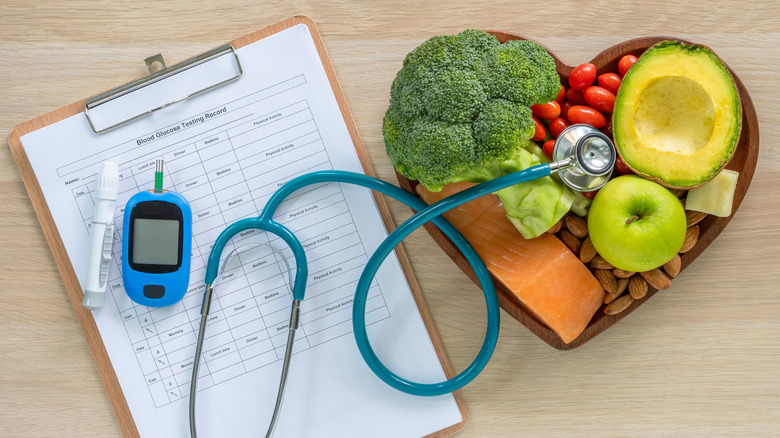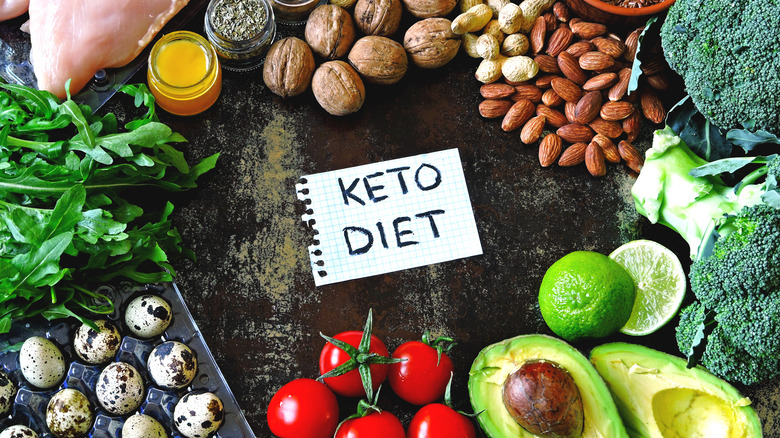What Happens To Your Cholesterol When You Go On A Keto Diet?
The keto diet is a popular diet that involves eating high amounts of fat and very few carbs (via Healthline). This diet was developed to help children with severe epilepsy, but it has turned into a trend that many people have followed for its promised weight loss results. While the keto diet can result in quick (albeit often temporary) weight loss, it is very difficult to stay healthy while following this eating plan. Because most of your calories come from fat when on the keto diet, it is important that you stick to healthy fats as much as possible. This includes eating things like fatty fish, avocados, and nuts while avoiding fats that come from food like mayonnaise, processed meats, and partially hydrogenated oils. According to WebMD, a diet high in saturated and trans fats can lead to a variety of health issues, including increased LDL "bad" cholesterol.
However, it may be possible to maintain healthy cholesterol levels on the keto diet if you are careful about which types of fat you consume. According to Everyday Health, a high-quality keto diet can result in very few changes in your cholesterol. However, this type of diet can be extremely difficult to stick to and is often unsustainable for most people.
Is the keto diet healthy?
While there are plenty of people out there who credit the keto diet for their weight loss success, many experts agree this diet is not a good idea for most people. Because this diet excludes many whole grains and fruits, it tends to be very low in fiber, which can result in constipation (via eMedicineHealth). Cutting out those foods can also increase your risk of a nutrient deficiency (via Harvard Health). It is important to eat a wide variety of fruits, vegetables, whole grains, and other whole foods to get all the vitamins and minerals you need.
Other risks of the keto diet include kidney problems, liver problems, mood swings, and brain fog. "The brain needs sugar from healthy carbohydrates to function. Low-carb diets may cause confusion and irritability," said registered dietitian Kathy McManus. Restrictive diets can also increase your risk of developing eating disorders. If you really want to try the keto diet, it is important to consult a doctor or registered dietician about your eating plan to ensure you get all the nutrients you need to survive.


